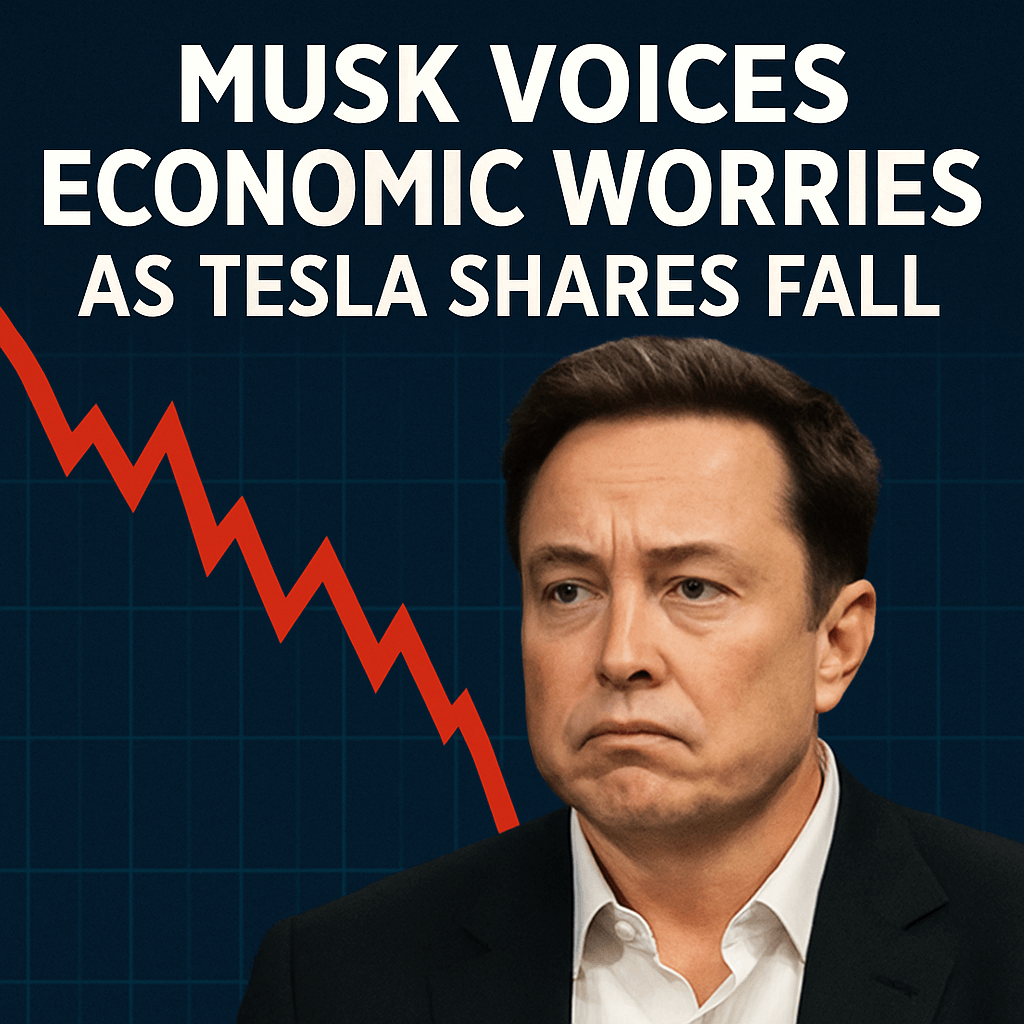Musk Voices Economic Worries as Tesla Shares Fall

The world’s richest man has recently raised alarms about the potential for a recession in the United States attributed to the economic policies championed by former President Donald Trump. This commentary was articulated on Thursday via Musk’s social media platform, X (formerly known as Twitter), amid an apparent rift between Musk and Trump, who had recently enjoyed a more amicable relationship.
Tensions Rise Between Musk and Trump
Musk’s prediction about the U.S. economy deteriorating during the latter half of 2025 was made in response to an X user criticizing Trump’s aggressive tariff strategy, which has been increasingly labeled as detrimental by various economists. This policy is essentially viewed as a tax on consumer goods, which has the propensity to inflate prices across multiple sectors.
Musk succinctly stated that the tariffs “will cause a recession in the second half of this year,” a comment that has ignited further dialogue among investors and economists about the potential implications on the economy. The ensuing comments from Musk included a call for Trump’s impeachment along with a controversial, unsubstantiated claim regarding the former president’s name being linked to unreleased FBI records concerning Jeffrey Epstein.
Trump Responds
In retaliation, Trump used his social media platform Truth Social to respond to Musk, suggesting he would consider revoking government contracts with Musk’s companies. This spat comes at a time when apprehensions around Trump’s economic agenda have been surfacing among various business executives. Notably, JP Morgan Chase CEO Jamie Dimon recently highlighted a “crack in the bond market” as investors express concerns regarding the U.S. government’s fiscal health, especially in light of proposed expansive tax cuts.
Tariffs and Economic Implications
The tariffs instituted by Trump are designed to protect U.S. industries by making foreign goods more expensive. However, they have drawn widespread criticism for materially increasing the prices of everyday items. For instance, during a recent congressional hearing, Commerce Secretary Howard Lutnick defended these tariffs despite questioning from Representative Madeleine Dean (D-Pa), who pointed to tangible price increases—such as an 8% spike in the cost of bananas at Wal-Mart—as evidence of the tariffs’ negative impact.
Lutnick argued that tariffs could be mitigated if companies opted to build domestic production facilities, but critics argue that some goods, notably agricultural products like bananas, cannot be produced domestically on any significant scale.
Market Reaction and Tesla’s Stock Performance
The public spat between Musk and Trump has nevertheless had immediate ramifications on financial markets, with Tesla shares experiencing a notable decline of over 14% on a day when broader market indices were generally bullish. This sharp drop highlights investor sensitivity to political uncertainties and their potential effects on corporate performance.
With economic indicators suggesting heightened volatility and uncertainty, how President Trump’s proposed “big beautiful bill” aimed at cutting taxes will progress remains unclear. The non-partisan Congressional Budget Office estimates that this bill could potentially add a staggering $2.4 trillion to the national debt over the next decade, an outcome that raises red flags for long-term economic stability.
Broader Economic Context
The dichotomy between Musk’s views and those of Trump underscores a growing divide among American business leaders regarding fiscal policies. As inflation pressures mount and interest rates rise, more executives may find themselves voicing concerns about the U.S. economy’s direction. Analysts also suggest that the entwining of politics with economic policy can contribute to an unstable investment landscape.
Conclusion: The deterioration of relations between Musk and Trump, compounded with the latter’s contentious tariff policies, poses intricate challenges for the U.S. economy. The implications for sectors particularly impacted by tariffs, such as automotive and import retailers, remain to be seen as we navigate these fiscal headwinds.
As the situation develops, investors are encouraged to keep a close watch on both political developments and economic indicators to anticipate shifts in market dynamics.